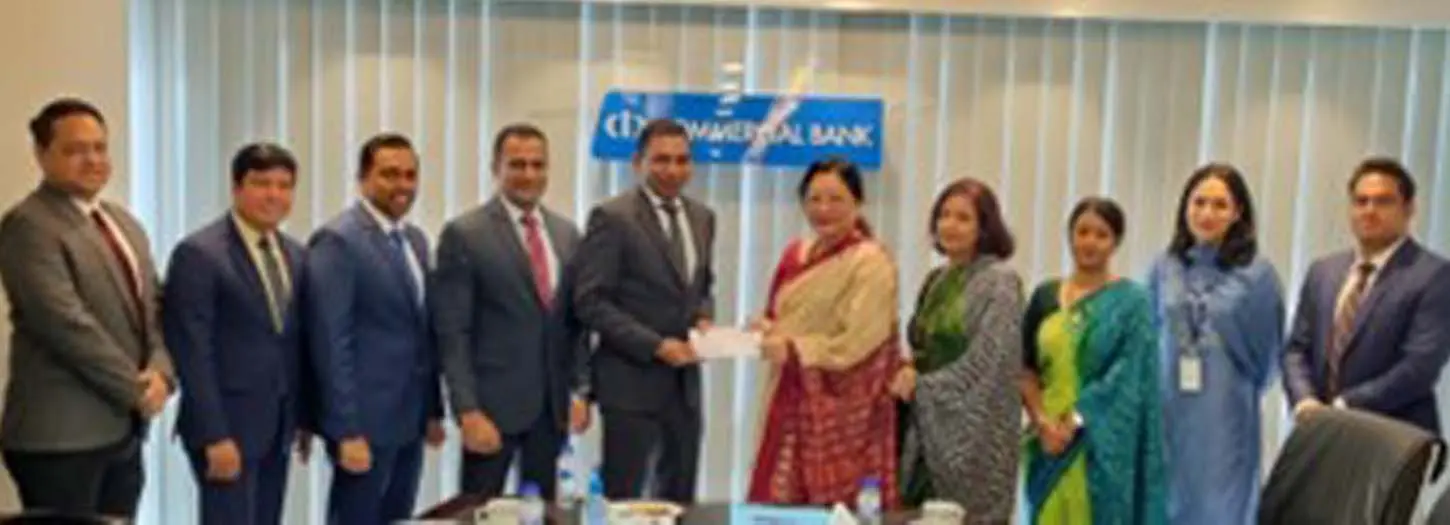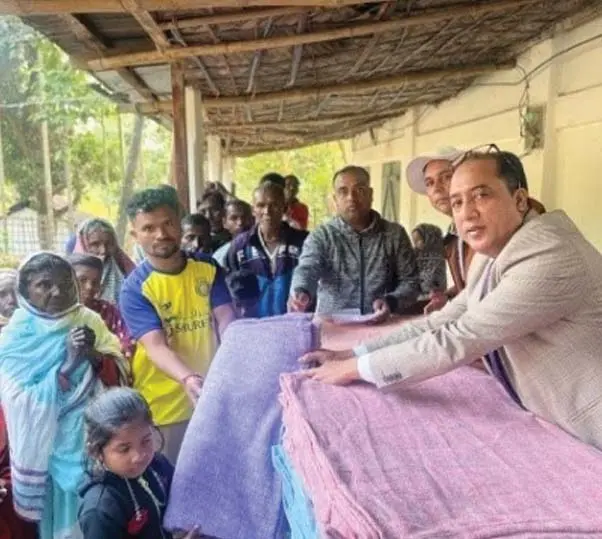Keyword search
My Report
Guided by the Bank’s Sustainability Framework and spearheaded by sustainability committees, the Bank achieves Community Engagement through multi-faceted initiatives, collaborations and programmes that focus on social and environmental aspects.
One aspect of Community Engagement is the Bank’s outreach programmes, which aim to support and uplift needy communities at the grassroots level. The Bank’s CSR activities directly address their needs and challenges. Through initiatives focused on education, healthcare, environment and community development, the Bank aims to uplift and empower individuals in such communities. This includes providing access to quality education and vocational training, improving healthcare facilities and services, promoting environmental sustainability and supporting community development projects which aim to make a positive and sustainable impact, improving the lives and opportunities of those in need.
Commercial Bank strategically supports social enterprises, collaborating with organisations like IFC, Sarvodaya and UNDP to empower marginalised communities by establishing initiatives such as childcare centers and donating food dehydrating machines, aiming to balance financial success with meaningful societal and environmental impact.
The Bank’s Community Engagement efforts also include specific projects such as mangrove restoration, tree planting initiatives, providing water purification plants and storage tanks, etc. Through collaboration with Wildlife and Ocean Resource Conservation, the Bank initiated a mangrove planting project in designated areas to prevent land erosion, preserve buffer zones and restore the balance of fauna, flora and human settlements.
The Bank utilises diverse communication channels such as Facebook, Twitter, LinkedIn, and Instagram to ensure comprehensive reach and effective dissemination of information with regard to community engagement, sharing updates, success stories and educational content on sustainability.
The Bank encourages its staff to actively participate in community volunteering initiatives that benefit the community and the environment. To maximise their engagement and awareness, the Bank has introduced an awards programme for the Best Sustainable Branch and the Department. This recognises and encourages sustainable practices within the Bank and fosters a sense of social and environmental responsibility.

The Bank serves as a steadfast financial institution committed to the responsible management of societal and environmental well-being through a comprehensive approach. Aligned with its sustainability vision, the Bank has seamlessly integrated sustainability principles across its operations, organisational culture and the entire value chain. This involves robust and enduring outreach programmes shaped by an environmental conscience, emphasising the Bank's commitment to Corporate Social Responsibility (CSR) by reaching out to disadvantaged communities at the grassroots level. Leveraging its environmental awareness, the Bank actively balances conservation efforts with emissions management, striving to proactively protect nature while reducing its carbon footprint.
Governance Framework in place at the Bank for community engagement
Figure – 34Governing Body |
CSR Trust |
Executive Sustainability Committee |
Managed by |
A dedicated CSR Unit headed by a Senior Manager consisting of a four member team |
Sustainability Working Committee comprising members of Corporate Management and Heads of 16 Departments |
Process followed |
Highly efficient project management process, including a rigorous approach to selection of projects |
|
Membership |
Future Force Members and ownership at branch and department level |
|
The Bank’s sustainability endeavours are overseen by a cross-functional Sustainability Working Committee (SWC), featuring representation from key sustainability-related functional areas and incorporating a thorough measurement mechanism. The Bank’s sustained and new partnerships with public, private and non-governmental organisations, both locally and internationally, play a crucial role in advancing its sustainability strategy.
Through these initiatives, the Bank commits to engage in the following SDGs:

Commercial Bank supports social enterprise
Commercial Bank took a strategic initiative to support social enterprise, empowering the communities to stand up on their own. Reaching out to the marginalised communities and supporting them to create livelihoods is the Bank’s objective in this strategic focus.
In this, the Bank goes beyond traditional profit-driven models, striving to balance financial success with a meaningful contribution to the society and the environment. In taking this strategic initiative forward, the Bank enters into collaborations with like-minded entities having expertise in the relevant fields.
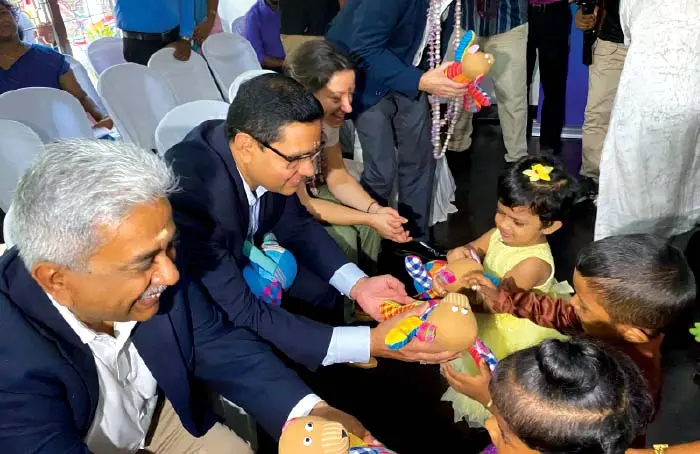
Establishing a Childcare Centre in Batticaloa in collaboration with IFC

Collaboration with IFC and Sarvodaya to establish a Childcare Centre in Batticaloa
A study done by IFC in the Eastern Province highlighted that not having proper reliable childcare facilities in the region is negatively impacting the productivity levels of both men and women. Therefore, as a solution and also as an employment generating mechanism, IFC together with Sarvodaya proposed to establish a well-structured childcare centre in Batticaloa with well-trained childcare specialists and the Bank supported this initiative.
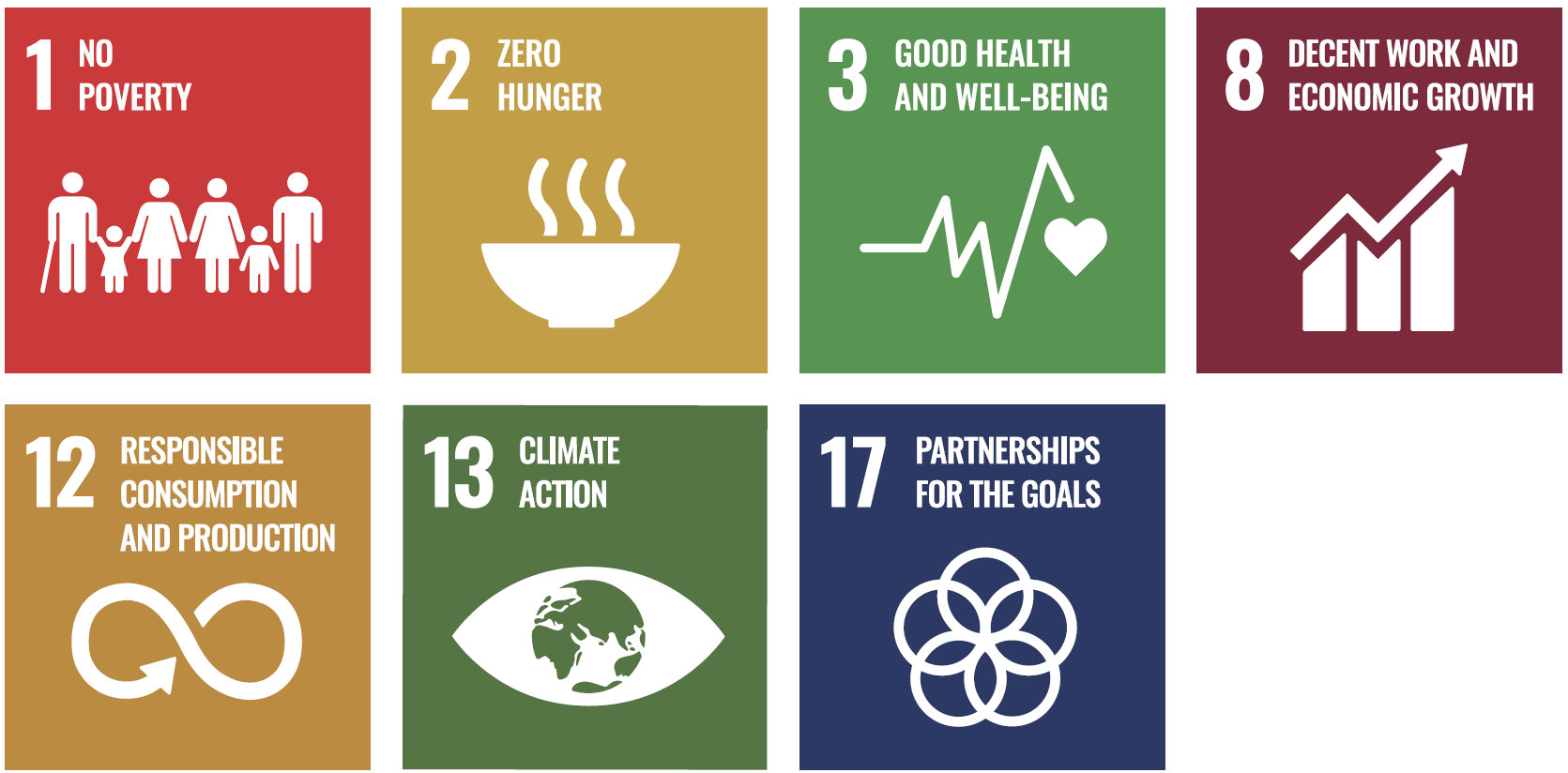
Collaboration with UNDP to donate a food dehydrating machine to Hettipola Village
As an additional income generation mechanism to the underprivileged farming community in Hettipola, where UNDP through their GEF Small Grants Project had established women societies. The Bank donated a food dehydrating machine to the women society in the village. The society now initiates dehydration of excess produce to packet and sell them, generating an extra income for the poor farming families.
Corporate Social Responsibility (CSR)
The Bank’s Corporate Social Responsibility Trust (CSR Trust) envisions a future where no one is left behind and where the financial commitment of the Bank’s outreach programmes will uplift societies, especially the younger generations who are the leaders of tomorrow.
The CSR Trust applies the foundational strengths of outreach in five sustainable areas targeted to empower communities.
- Education
- Healthcare
- Environment
- Community and
- Cultural Heritage
The unique mandate of the Bank’s CSR Trust emphasises empowering the citizens of the nation to actively contribute to Sri Lanka’s socio-economic development, rather than seeking direct benefits or aligning with the Bank's business objectives. Allocating up to 1% of its post-tax profit annually, the Trust focuses on five broad sustainable areas mention above to redirect its CSR initiatives meaningfully. Serving all communities, religions, geographical locations and races without discrimination, the Bank’s CSR Trust aims to make a positive impact on society.
Bank’s well-planned approach to CSR initiatives:
- The Bank’s CSR Trust is comprises five-member Board of Trustees who drive the CSR strategy
- The commitment of the Bank’s leadership to advance CSR initiatives
- All projects are managed by the CSR Unit of the Bank
- Volunteerism and ownership at the branch and department level
- Rigorous post-evaluation of the projects undertaken
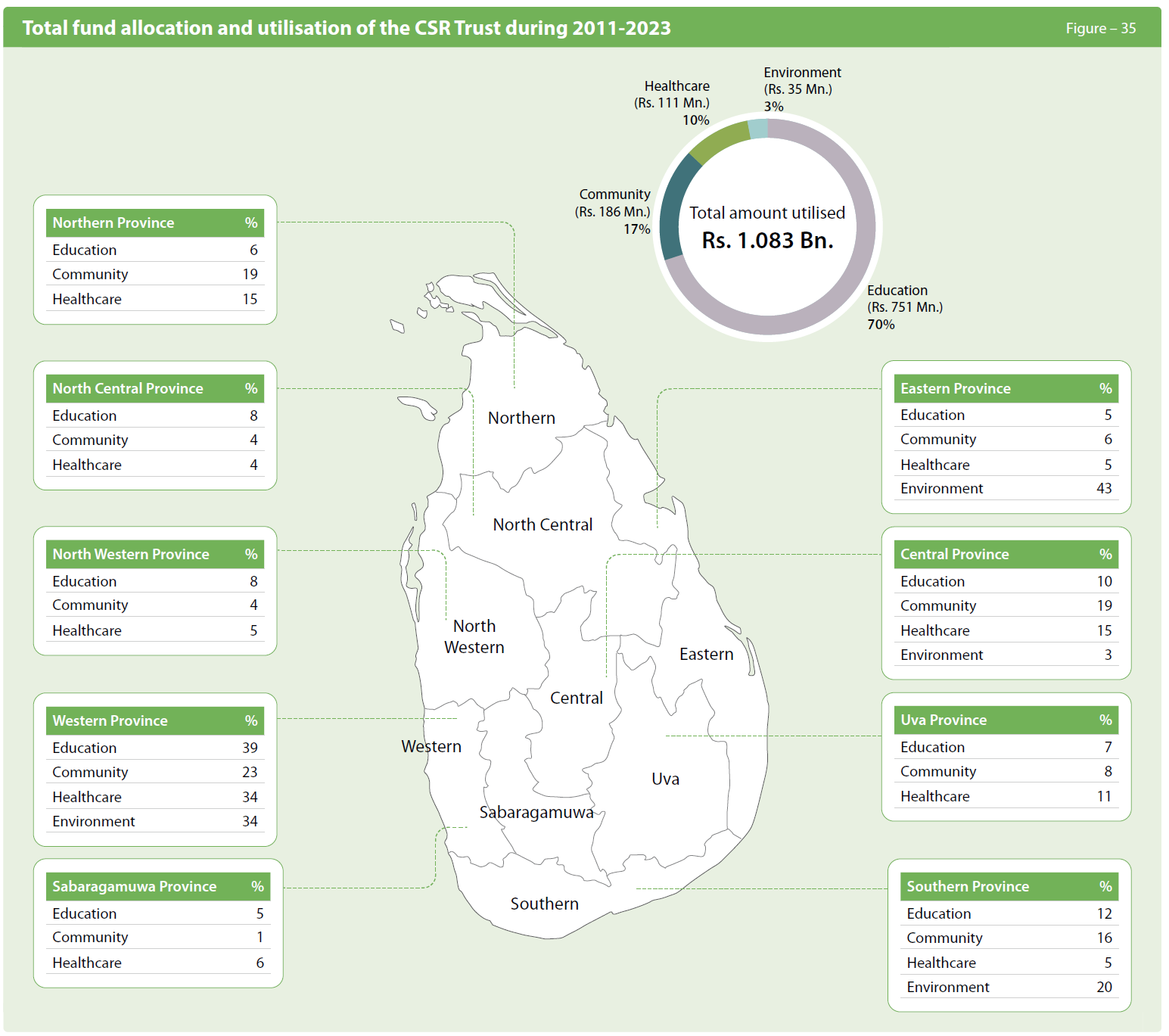
The Bank has garnered the following awards and accolades for its CSR initiatives:
- Best CSR Bank from Global Banking and Finance Review Magazine, UK
- Winner – Banking Category from ACCA – Sri Lanka at Sustainability Reporting Awards 2022
- Integrated AR & CSR: Non-Traditional Format Silver Award from MerComm ARC Awards 2023
Snapshot of CSR and sustainability initiatives
Figure – 36

Education
IT Labs
334 IT Labs
2,856 Computers
290 Schools
44 Institutions
Benefitting over 300,000 Students
STEM Classrooms
170 STEM Classrooms
170 Schools
Benefitting over 160,000 Students
Math Labs and Math Seminars
122 Math Labs
90 Math Seminars
120 Schools
02 other institutions
Benefitting over 100,000 Students
SMART Classrooms
18 SMART Classrooms
03 SMART TVs
15 SMART Boards
Promoting Technical Education
80 sessions promoting vocational Education benefitting over 10,000
09 Mobile Repair Courses Benefitting 57 students

Healthcare
101 Healthcare projects in 93 Hospitals

Community
Water Projects
38 Water Projectsin 7 hospitals, 13 communities and 18 schools
Rain Water Harvesting Project in Ginnoruwa – 160 of 5000-liter water storage tanks benefitting over 970 people
Disaster Relief
11 Disaster Relief projects benefitting a population of over 2,000
Other
Community Walk and Tree planting programme in Kandy
Adopted 02 Ambulances of 1990 Suwasariya Foundation
Social engagement
Education
IT labs
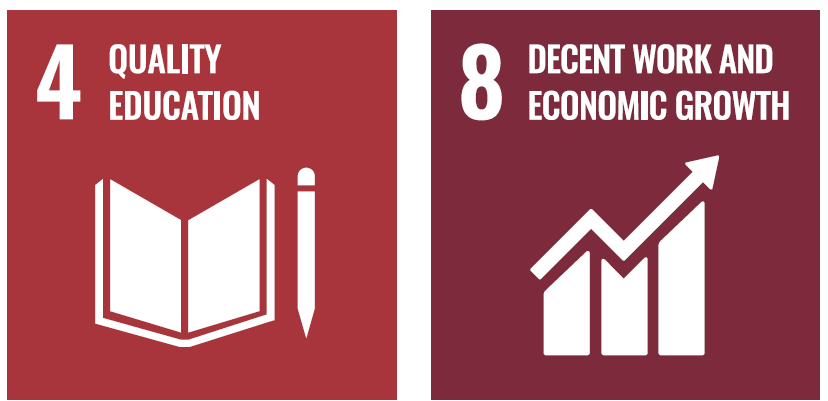
The Bank added 54 “IT Labs” in 2023, bringing the total to 334 and extending the technological access to a broader student population.
The Bank, through its CSR Trust, employs a comprehensive approach to implement impactful projects under the Education pillar, representing the largest CSR expenditure. Following a strategic decision to focus on IT Education and digital literacy development for the youth, the Bank has made substantial strides in increasing its investment in IT education, fostering a technologically proficient future generation. Building on the initiative to establish IT labs in rural schools since 2011, the Bank added 54 “IT Labs” in 2023, bringing the total to 334 and extending technological access to a broader student population. This initiative has played a crucial role in retaining students in rural schools and preventing the closure of some struggling schools due to a lack of IT resources.
In 2017, the Bank initiated efforts to enhance IT literacy among young individuals by establishing “smart learning environments”, investing in skill development programmes and bolstering educational infrastructure. These endeavours directly align with Sri Lanka’s Sustainable Development Goals, particularly Goal 4 (Quality Education), aimed at fostering inclusive, equitable and quality education while promoting lifelong learning opportunities. Furthermore, the Bank advocates for SDG 17 (“Partnerships for the Goals”), recognising that collaborative partnerships amplify impact and yield more robust outcomes.
Contribution during the year 2023
Education
IT Labs
54 IT Labs
592 Computers
48 Schools
6 other institutions
Over 70,000 students
STEM Classrooms
30 STEM Classrooms
3 SMART TVs
1 SMART Board
34 Schools
Over 35,000 students
Math Labs
37 Math Labs
17 Math Seminars
37 Schools
5 camps
Over 40,000 students
To support job oriented education
09 Mobile Repair Course for 57 students

SMART schools
The SMART School project focuses on the digitisation of core subjects in GCE Ordinary Level and Advanced Level grades, creating a digital learning platform to enhance the education of secondary school students in rural areas. Through a Public-Private-Partnership with Headstart (Pvt) Ltd., Microsoft Sri Lanka and Dialog Axiata PLC, the Bank works to establish smart learning environments in traditional secondary education classrooms. Teacher training on the use of smart techniques is a key component of the initiative, benefitting over 75,000 students across nine districts. The Bank’s commitment to promoting STEM education is evident through the expansion of the “Smart School” concept, establishing STEM Classrooms, Coding Clubs and Math Labs in schools.
STEM classrooms
The initiation of the STEM Classroom project in 2020 marked a significant advancement in the Bank's dedication to the Education pillar during its centennial celebrations. As part of the "100 Sipnena Smart STEM Schools" initiative, the Bank is actively involved in the long-term transformation of conventional classrooms into STEM centers. Leveraging digital learning content from the Sipnena online education platform, the project prioritises Science, Technology, Engineering and Mathematics (STEM) subjects crucial for various IT-related careers. Selected schools are equipped with computers, multimedia projectors, furniture and access to specially curated digital content, enhancing the overall learning experience. In 2023, the Bank successfully established 30 STEM Classrooms, increasing the total to 170 and benefitting approximately 160,000 students nationwide. Future plans involve extending the project to students from Grade one to the GCE Ordinary Level.
Math labs
Introduced in 2015 with the aim of nurturing the mathematical and analytical capabilities of schoolchildren, the Math Lab project remains an active venture spearheaded by the Bank. Throughout recent years, the Bank has established several math labs primarily in rural schools across Sri Lanka. This endeavour has garnered interest from young learners across various age brackets, eager to engage in hands-on learning through interactive mathematical activities. These labs serve as platforms for students to deepen their understanding of mathematical concepts, enhance problem-solving skills and foster critical thinking abilities. The Bank established 37 Math labs in 2023 raising the total to 122.
Coding Clubs Project
Launched in July 2020 as part of the second phase of the STEM Classroom initiative, the Coding project is a collaborative venture involving Commercial Bank, STEMup Educational Foundation, IRIM Croatian Makers, Micro:bit Educational Foundation, Rotary Club Zagreb Centre and other contributors. Aligned with STEMup Foundation's mission to inspire students toward STEM degrees and careers, the project establishes computer coding clubs in 100 selected schools across the country. The objective is to equip students with programming skills, fostering innovation and the development of functional applications. The Bank’s commitment extends to funding
train-the-trainer programmes and providing essential learning tools, including “Internet of Things” (IoT) kits and other necessary resources.
CISCO Networking Academy – Commercial Bank collaboration
In 2020, the Bank, in partnership with the CISCO Networking Academy, facilitated around 500 students from government schools to enroll in various basic IT courses of their choice through a virtual platform, free of charge. The Bank bears the students’ lecture fees and CISCO Networking Academy provides the courses without any charge. This collaboration is designed to maximise the use of the IT labs donated by the Bank, allowing students to pursue IT courses by connecting to the CISCO Networking Academy curriculum and earn certifications upon successful completion. CISCO certifications hold significant value in the IT industry and the Bank has successfully trained over 2,000 students through this programme, making them eligible for well-paying jobs.
Youth empowerment through vocational training
In partnership with the Vocational Training Authority (VTA), the Bank facilitated school leavers who completed their 10th grade to pursue technical qualifications up to NVQ Stage III certification across diverse technical disciplines. The "120 Days Training" initiative has provided essential skills to school dropouts, preparing them for opportunities in the construction sector. Through this sustained effort, Commercial Bank has empowered more than 340 young individuals to secure meaningful employment.
The following VTA-enabled training facilities and programmes were conducted in 2023.
- Teamed up with the “Sipvin” Vocational Training Institute in Moratuwa, the Bank launched a Mobile Repair Course aimed at empowering underprivileged individuals. More than 57 students have completed this intensive one-month programme, gaining valuable skills to improve their employability prospects and secure higher monthly incomes.
- Supported the Vocational Training Authority to enroll students from government schools and initiated the establishment of 15 STEAM Clubs in schools, emphasising its commitment to bridging the gap in vocational education for students.
Impact assessment
In line with our dedication to education, we conducted a comprehensive impact assessment of the STEM educational facilities donated by the CSR Trust to underprivileged schools. This assessment highlighted the significant transformative influence of these IT labs on education, reaffirming our commitment to narrowing digital disparities and fostering a better future for our communities. Additionally, the collaboration with the National Science Foundation and the Sasnaka Sansada Foundation demonstrates our commitment to transparency and accountability. Through such partnerships, CSR Trust ensures thorough evaluation processes, enabling it to enrich its strategies and sustain positive contribution to education.
Healthcare
The CSR Trust executed healthcare projects in 08 hospitals disbursing funds amounting to Rs. 16.0 Mn. Noteworthy contributions included the donation of critical care equipment and development of infrastructure facilities to government hospitals. This initiative aimed to enhance the healthcare infrastructure and support the well-being of the local population.
Contribution during the year 2023
Healthcare
To uplift the healthcare service
8 Healthcare Projects conducted in Government Hospitals – Spent Rs. 16 Mn.
Adopted 02 Ambulances of 1990 Suwasariya foundation with the cost Rs.10 Mn.

Food security
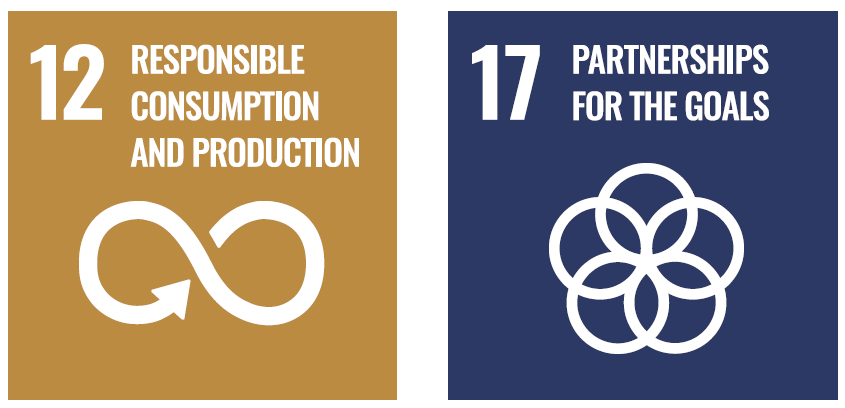
When fundamental human needs such as food, clean water and proper sanitation are lacking, it can trigger a cascade of adverse effects, with poor nutrition emerging as a crucial and overarching concern.
According to the World Food Programme (WFP) Sri Lanka Situation Report from March 2023, 32% of households in Sri Lanka are experiencing food insecurity, with 73% resorting to negative food and livelihood coping strategies. To address this issue, WFP exclusively partnered with Commercial Bank to distribute funds to selected beneficiaries in Sri Lanka through an outreach programme aimed at preventing malnutrition and assisting families in accessing food. The memorandum of understanding (MOU) in this regard was signed in August 2023.
In collaboration with WFP as the exclusive financial partner, the Bank supported the community by distributing WFP Aid worth of Rs. 183.190 Mn. (USD 570,000) to 9,961 households in Jaffna, Mullaitivu, Badulla, Matara, Colombo, Kegalle and Ratnapura Districts to reach their alimentation and nutritive needs.
As a benefactor, partner and patron of the partnership with the WFP, the Bank bolstered the grassroots level capacity of over 10,000 households to reach their alimentation and nutritive needs.
Cultural heritage

The Bank continued its annual children's art competition "Arunalu Siththam" for the fourth consecutive year, inviting young talents from all over Sri Lanka to showcase their artistic abilities. Looking ahead to 2024, the Bank plans to expand its philanthropic efforts by supporting traditional handcrafted arts and crafts of small and medium enterprises (SMEs), such as the mask industry in Ambalangoda.
Community development
In 2023, the Bank continued its commitment to social responsibility by supporting communities severely impacted by economic and environmental challenges. Collaborating with the Centre for Education, Research and Training on Kidney Diseases, the Bank donated 5,000-liter storage tanks to fifty families in the Ginnoruwa area. The “Ran Aswanu Mangalya” initiative, led by the Bank in Minneriya Dewalaya, exemplifies our commitment to community engagement and sustainable practices. Collaborating closely with the Dewalaya, the Bank orchestrated a comprehensive programme aimed at uplifting the agricultural community in the area. Activities included the distribution of farming equipment to local farmers, conducting capacity-building programmes, installing a water purification system at Dewalaya, installation of signage boards near the Minneriya Tank to increase visibility and awareness and organising a tree planting initiative in the locality. These efforts not only support the first harvest tradition of offering kanna to the Minneri Deity but also contribute to the overall well-being and prosperity of the community.
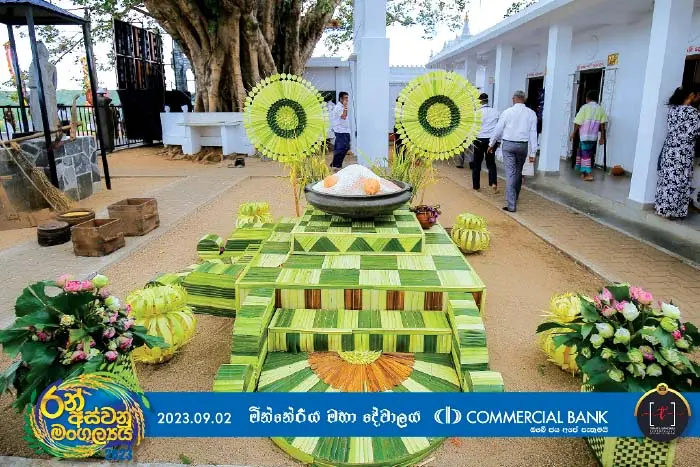
Ran Aswanu Mangalya
The Bank was also engaged in Planting trees around Gatabe Municipal Ground jointly with the Municipal Council of Kandy and the Forest Department. The Bank also sponsored two ambulances in “Adopt an ambulance” programme for 1990 Suwasariya Foundation.
Staff volunteering initiatives, such as the Conservation of Aquatic Ecosystem and Revamping School Premises projects, have involved the participation of volunteer staff members across 16 projects, reflecting our commitment to making a positive impact on the communities we serve.
Looking ahead to 2024, the Bank plans to expand its community development initiatives and engagement even further.
Contribution during the year 2023
Community
To enhance the standard of living
Rain water Harvesting Projects in
Ginnoruwa
7 Drinking Water projects in 3 hospitals,
1 school and 3 other institutions
Donated 5,000 litre water tanks to
50 families in Ginnoruwa
Environmental engagement

Environmental engagement is currently a crucial imperative in combating climate change. For many years, Commercial Bank has played a central role in advocating for the environment, showcasing how the local banking sector can contribute to Sri Lanka's shift towards a low-carbon economy. Achieving the distinction of being the first carbon-neutral bank in Sri Lanka in 2020 underscores the success of its innovative measures to significantly diminish its carbon footprint, as well as that of its customers and other stakeholders. The Bank received the Best Corporate Citizen Sustainability Award for 2021 from the Ceylon Chamber of Commerce in recognition of its carbon-neutral accomplishment.
The Bank's initiatives to protect the environment encompass a restorative mangrove rehabilitation project, financial support for a conservation programme benefitting pollution-threatened turtles and a regeneration effort to reclaim degraded forest land. Additionally, these initiatives involve providing loans to promote eco-friendly operations, encouraging customers to adopt paperless banking and minimising the consumption of non-renewable energy, water and other resources in its operational processes.
Environmental conscience
The Bank is deeply involved in concrete environmental preservation endeavours, concentrating on minimising operational emissions and advocating for energy conservation. Additionally, the Bank actively engages in vital projects dedicated to ecosystem preservation. These actions serve as clear manifestations of the Bank's steadfast dedication to safeguarding biodiversity and preserving ecosystems.
The Bank actively engages its employees in environmental initiatives, aiming to cultivate a culture of environmental awareness and responsibility within the Bank. Through targeted programmes such as environmental training, internal communications and green office practices, employees are encouraged to adopt sustainable behaviours. Additionally, initiatives like employee engagement programmes, reward schemes and competitions further promote environmental consciousness. Local employees play a crucial role in all environmental projects, facilitating easy monitoring, fostering ownership and raising awareness, thereby ensuring the long-term sustainability of these initiatives.
Contribution during the year 2023
Figure – 3712,000 trees planted
”Trees for Tomorrow”
Over 22,000
Sea turtles released
Scientific research study on the Mangrove Eco System in Koggala Lagoon

Trees for Tomorrow
The ”Trees for Tomorrow” initiative engaged the entire branch network, highlighting the strength of collaboration and cross-functional teamwork. Orchestrated by a dedicated team,the event led to the successful planting of impressive 12,000 trees nationwide, showcasing a commitment to environmental stewardship and the impactful results achievable through collective efforts. Looking forward, an ambitious goal of planting an additional 100,000 trees signifies a commitment to a substantial and lasting contribution to the environment. This objective extends beyond a numerical target, symbolising a determination to act as a catalyst for positive change and environmental sustainability.
Crucially, the ”Trees for Tomorrow” project emphasises the significance of staff engagement on a volunteer basis. This aspect is integral to the sustainability philosophy, fostering a sense of community and shared responsibility among staff members. Through active participation in initiatives like tree planting, employees become ambassadors for sustainability, contributing to a more sustainable and green environment and cultivating a culture of environmental consciousness within the organisation.
Mangrove restoration project
The Bank has strategically pinpointed areas where human activities have negatively impacted the well-being of nature and has undertaken initiatives to restore and enhance the harmony between fauna, flora and human settlements. A mangrove planting project, conducted in partnership with Wildlife and Ocean Resource Conservation around Koggala Lagoon, aims to combat land erosion on 21 islands in the vicinity. During 1st, 2nd and 3rdPhases of the project more than 12,000 mangrove plants were planted to cover 1.25 kilometres in the Kathduwa and Madol Duwa.
In 2023 under the 4th phase, the initiative extended beyond reforestation, significantly contributing to scientific research while uncovering new mangrove species. Focused on a holistic approach ensuring project sustainability, the project also boosts community income through eco-friendly measures, such as catamaran promotion and supports the traditional cinnamon industry. With an emphasis on directed tourism, the project ensures enduring success, merging scientific insight with community economic well-being.
Turtle Conservation Project
The Turtle Conservation Project, initiated in collaboration with Wildlife and Ocean Resource Conservation, focuses on protecting sea turtles, which are classified as an endangered species by the IUCN, at Panama beach. Utilising a natural methodology known as in situ conservation, over 72,000 turtles have been released into the deep sea since 2019. In 2023, the Bank allocated Rs. 4 Mn. towards the conservation of turtles.
Memberships

The Bank's membership in various international and local alliances and affiliations underscores its commitment to collective action in curbing GHG emissions and promoting green environmental measures, which lie at the heart of sustainability. These alliances and affiliations serve as essential platforms for collaboration, knowledge sharing and coordinated efforts towards achieving environmental objectives. By aligning with like-minded organisations, the Bank strengthens its position as a consolidated force on the ground, leveraging collective resources and expertise to address pressing environmental challenges. Through these partnerships, the Bank demonstrates its dedication to sustainability and its recognition of the importance of collaborative action in safeguarding the planet for future generations.
The Bank is a member of the following international and local alliances and affiliations:
1
Sustainability Banking Initiative of the Sri Lanka Banks’ Association
2
United Nations Global Compact (UNGC)
3
Business and Biodiversity Platform of Sri Lanka
4
International Finance Corporation (IFC)
CSR Projects in Bangladesh
The Bank carried out the following CSR projects in Bangladesh:
| Name of the Organisation | Name of the Project | Amount in BDT Mn. |
| Bangladesh Environment and Development Society (BEDS) | Tree Planting | 0.5 |
| Thengamara Mohila Sabuj Sangha (TMSS) | Tree Planting | 0.5 |
| Prime Minister’s Education Assistance Trust (PMEAT) | CSR donation to PMEAT | 0.5 |
| Society for the Welfare of Autistic Children (SWAC) | Education and training programme for autism and neuro-diverse children and youths | 1.0 |
| Bangladesh Bank (Mr Shahneoaj Sumon, Joint Director) |
Blood Cancer Treatment | 0.5 |
| Bangladesh Buddhist Foundation International Buddhist Monastery;
|
Winter Clothes Distribution | 0.9 |
| Bangladesh Disabled Development Trust (BDDT) | Publication of Brail Magazine “Dristi Bijoyee” for Blind Children | 0.1 |
| NGO’s (TMSS, BRAC, Sajida Foundation) |
Special CSR (This amount has been adjusted from Special CSR which was disbursed in the year of 2021 as per BBK BRPD Circular No. 09 dated April 26, 2021) | 5.3 |
| Total | 9.3 |
